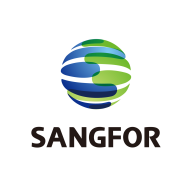


Sophos XG and Sangfor NGAF compete in the network security category. Sangfor NGAF may have the upper hand with its competitive cost and integration capabilities, especially appealing to small businesses.
Features: Sophos XG offers a web management portal, integration with Sophos Endpoint Protection, and synchronized security, enabling comprehensive threat management. Its VPN features and ease of deployment enhance its usability. Sangfor NGAF stands out with powerful application control, offering user-defined application restrictions and intrusion detection systems, which are essential for robust network protection. Its feature-rich offerings combined with competitive pricing make it attractive to users seeking extensive security configurations.
Room for Improvement: Sophos XG could enhance hardware performance, provide more granular traffic control, and integrate advanced features without separate consoles. Stability in updates, scalability, and technical support responsiveness can also improve. Sangfor NGAF needs a streamlined interface, better reporting and logging, improved integration, and expanded SD-WAN features.
Ease of Deployment and Customer Service: Sophos XG supports on-premises, public, and hybrid cloud deployments, with commendable but slow technical support. Sangfor NGAF offers on-premises and some hybrid deployments, recognized for excellent customer support through tailored solutions offered by its partners.
Pricing and ROI: Sophos XG is mid-range priced for small and medium businesses, providing good ROI through features like two-factor authentication. Sangfor NGAF is cost-effective, appealing to smaller organizations with its budget-friendly licensing and comprehensive service offerings.



Fortinet FortiGate offers comprehensive network security and firewall protection across multiple locations. It effectively manages data traffic and secures environments with features like VPN, intrusion prevention, and UTM controls.
Organizations rely on Fortinet FortiGate for its robust integration with advanced security policies, ensuring significant protection for enterprises, cloud environments, and educational sectors. It facilitates network segmentation, application-level security, and authentication management, securing communication within and between locations such as branches and data centers. Its efficient SD-WAN and UTM features enable streamlined data management and enhanced threat protection capabilities. Users appreciate its centralized management, facilitating seamless operations across diverse environments.
What are the key features of Fortinet FortiGate?
What benefits should users expect from Fortinet FortiGate?
Fortinet FortiGate is crucial in sectors like education, offering robust networks for secure data flow between campuses and facilitating remote learning. In enterprise environments, it allows efficient management of application traffic and security across multiple branches, while in the cloud, it seamlessly integrates with diverse platforms to enhance security infrastructure.
Sangfor Next Generation Firewall (also known as NGAF) is a converged security solution providing protection against advanced threat, malware, viruses, ransomware and web-based attacks using integrated security features like firewall, IPS, anti-virus, anti-malware, APT, URL filtering, Cloud Sandbox, and WAF. As the world's first AI-enabled and fully integrated Next Generation Firewall & Web Application Firewall (WAF), NGAF offering the security visibility, real-time detection and response, simplified operation and maintenance and high-performance application layer security needed to operate an enterprise network in total security. Tested and proven to provide cutting-edge network security by ICSA Labs and endorsed by Gartner Inc., NGAF harnesses the power of Sangfor’s Neural-X threat intelligence and analytics platform and Engine Zero’s innovative malware detection to provide next-generation protection for today’s enterprise.
Sophos XG is a versatile network security solution that offers network protection, firewall management, VPN access, web filtering, and intrusion prevention, providing comprehensive security for businesses from small offices to large enterprises.
Sophos XG stands out for its Synchronized Security, easy setup, and robust templates. It manages VPN access, protects against threats, and handles load balancing and traffic monitoring. The cloud-based management, centralized dashboard, and detailed logging make it user-friendly and reliable. Integration of features like email protection, SD-WAN, and unified threat management ensures a broad spectrum of security needs are covered. However, it could benefit from improvements in network security, user portals, technical support, and more scalable SD-WAN features.
What are the key features of Sophos XG?Sophos XG is implemented across industries such as healthcare, education, and finance to secure sensitive data and ensure regulatory compliance. It aids in endpoint protection, application control, load balancing, and traffic monitoring essential for these industries. Enhancing network security, simplifying VPN setup, and integrating adaptive security features remain focal points for businesses.
We monitor all Firewalls reviews to prevent fraudulent reviews and keep review quality high. We do not post reviews by company employees or direct competitors. We validate each review for authenticity via cross-reference with LinkedIn, and personal follow-up with the reviewer when necessary.